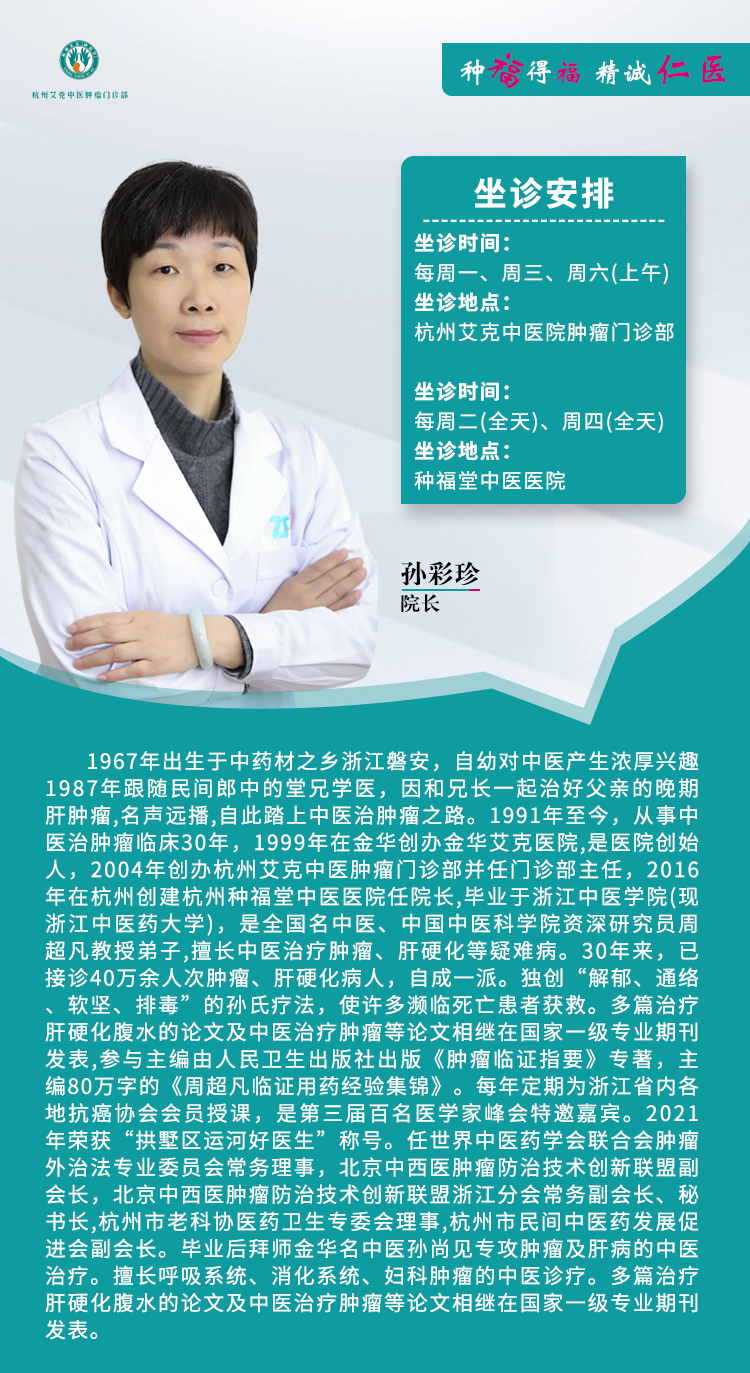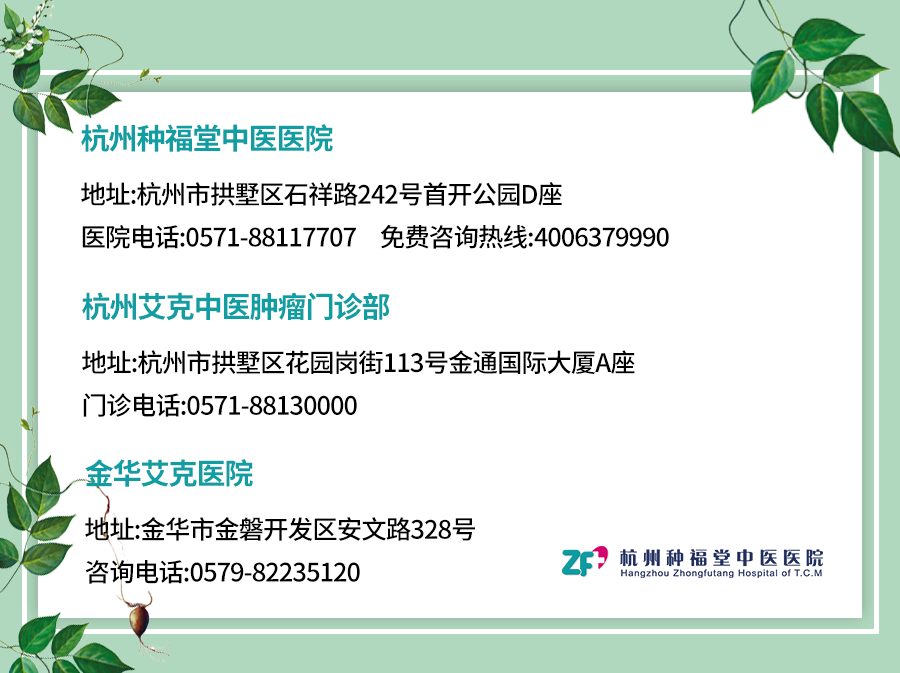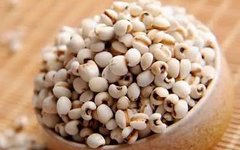
Source: The mature seeds of the plant Coix lacryma-jobi, belonging to the Gramineae family.
Properties: Sweet, bland, slightly cold
Functions: Strengthens the spleen, promotes diuresis, and drains pus
Dosage: Oral administration: decoction, 10-30 grams. This herb is mild in nature, requiring larger doses and prolonged use. It should be stir-fried for strengthening the spleen, while the raw form can be used for other purposes. Besides being used in decoctions, pills, and powders, it can also be made into soups or cooked with japonica rice for congee, making it an excellent food therapy ingredient.
Stir-Fried Coix Seed
Take clean coix seeds and stir-fry them in a pan over low heat until they turn slightly yellow and puff up. Store them in a dry bottle for later use; they can be used in congee or soups. This preparation has the effects of strengthening the spleen, promoting diuresis, reducing inflammation, and draining pus.
Strengthening the Spleen and Promoting Diuresis
After stir-frying, coix seeds become milder in nature, allowing the body to easily absorb the vitamins and minerals contained in them. They can effectively accelerate metabolism and reduce the burden on the gastrointestinal tract, improving symptoms of spleen deficiency and diarrhea.
Anti-Inflammatory and Diuretic Effects
Stir-fried coix seeds can also reduce inflammation and promote diuresis, providing good regulation for symptoms such as gastroenteritis, indigestion, abdominal distension, and abdominal pain. They can clear heat and promote urination, effectively preventing symptoms like edema and difficulty urinating caused by nephritis.
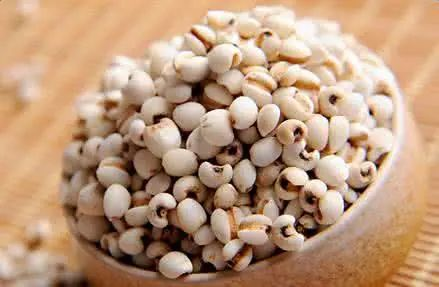
Effects of Raw Coix Seed
Strengthening the Body
Coix seed is rich in protein and amino acids. As the primary nutritional element in the human body, the consumption of coix seed can supplement the protein deficiency, enhance the body’s resistance, and improve immune function. This has a beneficial effect on strengthening the immune system, making it suitable for health maintenance in middle-aged and elderly individuals.
Pain Relief and Fever Reduction
Coix seed contains coixenolide, coixol, and coixine, which have good antipyretic effects against fevers caused by polysaccharides formed from bacterial complexes. It also has calming effects; if you are feeling irritable, consuming coix seed can help soothe your emotions, alleviating fatigue and irritability.
Methods of Consuming Coix Seed
Raw coix seed can be stewed with duck or other meats for a delicious flavor. Since coix seed is hard to cook thoroughly, it is recommended to wash and soak the seeds for two to three hours before stewing them with meat in a pot until cooked.
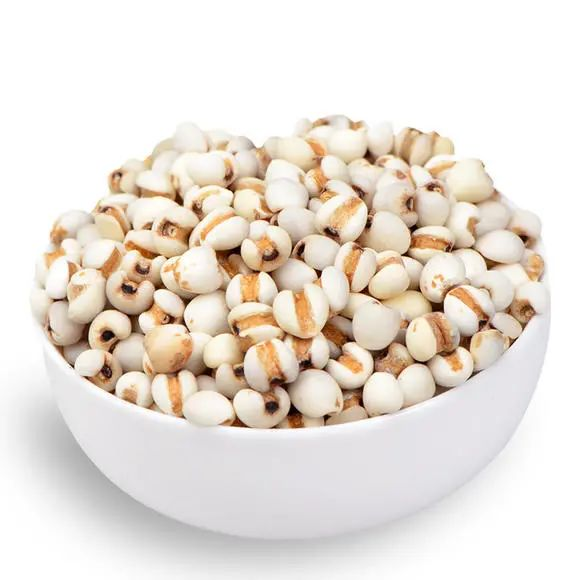
Formulas for Treating Cancer with Coix Seed
The “Bencao Gangmu” states: “Eliminates the evil qi from the muscles and bones, benefits the intestines and stomach, reduces edema, and increases appetite.” The “Yao Xing Lun” states: “Decoction breaks the five streams of toxic swelling.” The “Yixue Rumen” states: “Mainly treats qi deficiency, chest tightness, and pain.” Commonly used for treating lung pain, liver pain, gastric cancer, and choriocarcinoma associated with damp-heat accumulation and wind-damp obstruction.
Treatment for Lung Cancer
20 grams of coix seed, 30 grams of buckwheat, 12 grams of peach kernel, 6 grams of stink bug, and 15 grams of guangguo vine. Decoction three times, each for 20 minutes, combine the liquid, and take in three doses. One dose every month for a 15-day course. (“Antitumor: Efficacy of Traditional Chinese Medicine in Cancer Treatment”)
Treatment for Liver Cancer
Raw coix seed, 30 grams each of herbaceous plants like Hedyotis diffusa, Salvia miltiorrhiza, and oyster shell, 9 grams each of Codonopsis pilosula and earthworm, 12 grams of stir-fried pangolin, and 15 grams each of seaweed, soapberry thorn, and summer withered grass, decocted daily. (“Antitumor: Efficacy of Traditional Chinese Medicine in Cancer Treatment”)
Treatment for Gastric Cancer
30 grams each of coix seed, white peony, Eleutherococcus senticosus, and soft jujube root, and 9 grams each of sparganium and curcuma. Decoction daily. (“Antitumor: Efficacy of Traditional Chinese Medicine in Cancer Treatment”)
Treatment for Choriocarcinoma
30 grams each of coix seed, red bean, winter melon seed, and houttuynia, 15 grams each of astragalus, Hedyotis diffusa, and angelica, 9 grams each of donkey-hide gelatin and codonopsis, and 6 grams of licorice. Decoction daily. For abdominal masses, add cattail pollen and myrrh; for internal bleeding, add carbonized plantain; for abdominal distension, add magnolia flower; for chest pain, add turmeric and dried tangerine peel; for hemoptysis, add white peony and madder. (“Tumor: Diagnosis and Treatment”)
Reminder:
All the above traditional Chinese medicine formulas should be taken under the guidance of a TCM practitioner.
◆◆Previous Reviews ◆◆
⊙ Comprehensive Directory of Food and Medicine Integration
⊙ Don’t Miss an Important Step During Chemotherapy! Take Traditional Chinese Medicine
⊙ The lower the differentiation degree of cancer, the higher the malignancy! Don’t get it wrong!
⊙ A tumor larger than a fist in the left breast! After refusing surgery, she has been taking traditional Chinese medicine for over a year and is smiling
⊙ Beware of the “Red Killer”; breast cancer can be detected and treated early
Follow our public account for more content…

